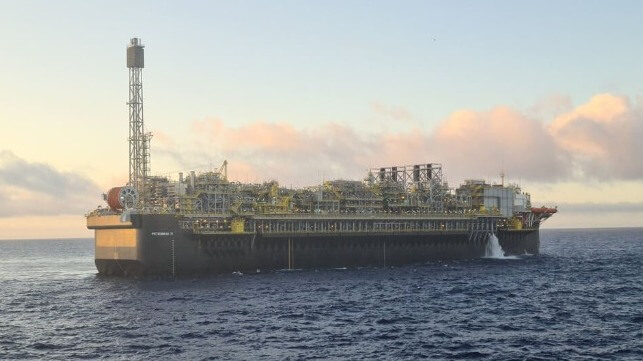Petrobras Continues Expansion Calling for Proposals for Two More FPSOs

Brazilian energy giant Petrobras is starting the contracting process for the development of two additional FPSO units as it continues to expand operations at fields launched in 2020 and 2021. The new units which will be P-84 and P-85 are also designed with new environmental considerations according to the company with a goal to reduce the intensity of greenhouse gas emissions by 30 percent per barrel of oil equivalent produced.
The platform design, standardized between the two units, represents a step in technological evolution says Petrobras. The design features an all-electric configuration, which according to the company will produce a reduction in emissions while optimizing the processing plant to increase energy efficiency.
They will incorporate several technologies including zero routine ventilation (recovery of vented gases from the cargo tanks and the processing plant), deep capture of sea water, use of speed variators in pumps and compressors, cogeneration (Waste Heat Recovery Unit), zero routine burning (torch gas recovery – closed flare) and valves with requirements for low fugitive emissions and the capture. The new units will also use geological storage of CO2 from the gas produced.
Proposals for these new units are expected to be received in July 2023. Production is anticipated to start in 2028 with the units placed operated at the shared sites at Atapu and Sépia. Platforms P-84 (Atapu) and P-85 (Sepia) will each have a daily production capacity of 225,000 barrels of oil per day and processing 10 million cubic meters of gas per day.
Petrobras announced last fall that it made a new oil discovery in the Sépia area, which is located in the Santos Basin. Production started in the area in 2021, with the company targeting 180,000 barrels per day from the first FPSO. A second FPSO in the area is expected to nearly double production. Petrobras as the operator at the site has a 55 percent interest with TotalEnergies, Petronas Petróleo Brasil, and QatarEnergy as the other major participants and a small position held by Petrogal.
Atapu has been in production since 2020. It started with P-70, which has the capacity to produce 150,000 barrels of oil equivalent (boe) per day. Petrobras, also as the operator, now holds a 65.7 percent stake in the shared deposit of Atapu, with Shell and TotalEnergies as the other primary participants. Petrogal and the Union, represented by Pré-Sal Petróleo SA – PPSA, have small portions of the shared deposit of Atapu.

that matters most
Get the latest maritime news delivered to your inbox daily.
A week ago, Petrobras announced that it had put its P-71 FPSO platform into production as part of the continuing expansion of its offshore operations. It is installed in the Itapu field, in the Santos Basin, approximately 125 miles off the coast of Rio de Janeiro. It has a capacity to process up to 150,000 barrels of oil and 6 million cbm of gas per day, in addition to storing up to 1.6 million barrels of oil.
Contracts for P-82 and P-83 were awarded last fall to Keppel Shipyard and Sembcorp Marine, which will each build one of the units. Those units are scheduled to enter production in 2026 and 2027 with Keppel valuing its contract at $2.8 billion and Sembcorp Marine reporting a cost of $3 billion, which is the largest contract secured by Sembcorp Marine from Petrobras.
